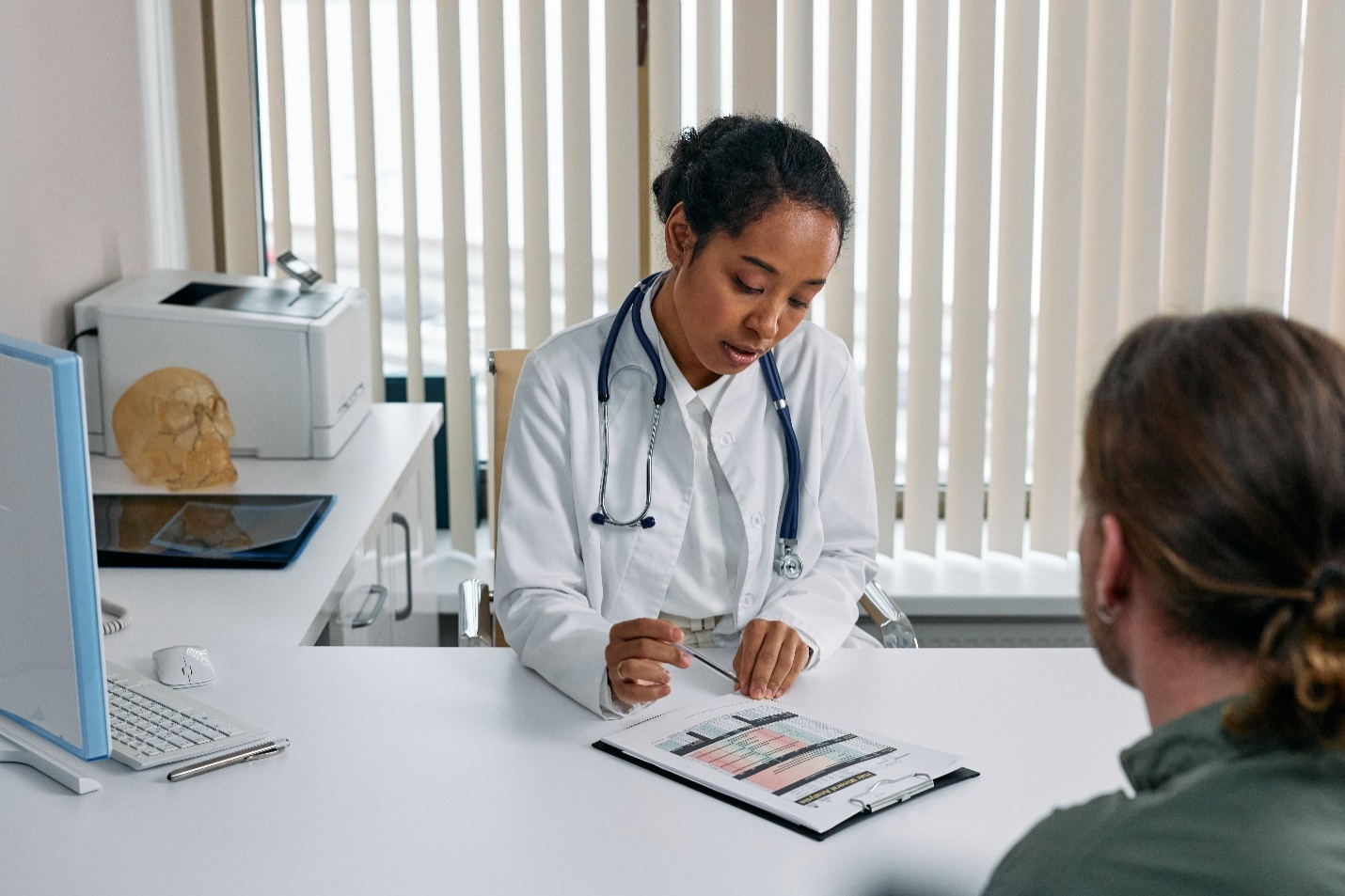Chlamydia: Everything You Need To Know
Sexually transmitted diseases are more common than you think. People who don't use protection during intercourse are more likely to catch STDs than those who do. Chlamydia is an STD that affects 4 million people in the United States annually.

This is the most common STD in the country, and that's why the CDC recommends that young people not skip their consultations with online doctors. This blog discusses everything you need to know about Chlamydia, so let's get started.
What Are The Symptoms Of Chlamydia?
This medical condition often goes undiagnosed because it either shows no symptoms or when it does, the symptoms are too generic and could be linked to any other disease. Here's a list of the symptoms that may affect men and women:
- A green- or yellow-colored discharge from the penis
- Burning sensation and pain while urination
- Inflammation of the fallopian tubes
- Testicular pain
- Lower back ache or cramping
- Pain and uneasiness during intercourse
- Bleeding post menstruation
- Cervix inflammation
- Vaginal discharge
What Are The Causes Of Chlamydia?
This is a sexually transmitted disease that occurs due to the presence of Chlamydia trachomatis. Usually, women are at a higher risk of developing this infection than men and can even transmit this STD to their fetus.

People who have intercourse with multiple partners often become the carriers of such an STD and can pass it on to other unsuspecting people. Semen and vaginal discharge are responsible for causing this infection, not just in the genitals but also in the anus, throat, and eye.
Oral Sex And Chlamydia
When a person performs oral sex on another person who has an STD, they can develop Chlamydia in their throat. Chlamydia is difficult to diagnose because there are few to no symptoms.
But in some cases, the following symptoms may appear:
- Developing a sore or dry throat
- High fever
- Incessant bouts of coughing
What Happens When Chlamydia Develops In The Eye?
While Chlamydia usually develops in the genital area, it sometimes affects the throat, anus, and eye. This usually happens to people who don't make it a habit to keep their hygiene in check. If an infected person neglects washing their hands after a trip to the bathroom and touches their eyes, they might develop Chlamydial Conjunctivitis. Treating Chlamydia in the eye is crucial; otherwise, it may lead to blindness.
Is Chlamydia Treatable?
Not all sexually transmitted diseases are curable or treatable, but Chlamydia is. Doctors usually prescribe certain antibiotics to get rid of bacterial infections. Following are some of the antibiotics that patients are prescribed for their treatment:
- Azithromycin: Often, this antibiotic is taken twice a day for at least a week.
- Doxycycline: This antibiotic is also taken every day for a minimum of one week.
Usually, antibiotics treat an average of 95% of people. For people who are either expecting a child, breastfeeding, or have some allergies, doctors may prescribe a different medicine, such as erythromycin or amoxicillin.

What's The Diagnostic Process?
This STD is usually diagnosed with either a swab or a urine test. Other times, medical experts ask you to sit for a physical test. This allows them to observe if your groin or the area surrounding the genitals has any redness, swelling, soreness, bumps, or any discharge—anything that might hint at the presence of an infection.
When it comes to testing this infection in women, doctors usually swab the area. In men, however, a urine test is necessary to diagnose Chlamydia.
What Happens If Chlamydia Is Left Untreated?
This is a medically treatable STD, but most people delay their tests for diagnosis. If this STD is caught in its initial stages, it won't cause any health complications. But delaying it for longer periods and deciding not to consult an online doctor might cause other serious health issues.
In women, for instance, untreated Chlamydia is likely to cause PID. This infection severely affects the cervix, uterus, and ovaries. In some cases, it might cause infertility by scarring the fallopian tubes.

On the other hand, if men don't get in touch with a doctor for Chlamydia treatment, they're likely to feel pain during intercourse. Epididymis may also develop, causing the tube that holds testicles in place to become inflamed. Often, Chlamydia affects the prostate gland and makes the lower back throb in pain.
Is Chlamydia Preventable?
Not just Chlamydia but Gonorrhea and herpes, and some other sexually transmitted infections are completely preventable. With careful use of protection and similar methods, people can indulge in safe sex without the fear of catching an STD. Here are some preventative measures one can follow:
- Consult an online doctor for Chlamydia and never skip your monthly assessments to ensure there's no STD present.
- Use a condom at all times.
- If you or your partner use sex toys, ensure they're clean and covered with a condom.
- Abstain from oral sex with your new sexual partner until both of you are sure about being STD-free.
How Do Newborns Develop Chlamydia?
Although it sounds unlikely, newborns can be severely affected by Chlamydia. When a pregnant woman with untreated Chlamydia delivers her baby, the baby might develop pneumonia and eye infections.

Chlamydia and Abstaining From Sex
Until you and your partner are STD-free, avoid having sex, especially if you took Doxycycline to treat the STD. But if you had a prescription for Azithromycin, you may indulge in the activity after a week post-treatment. This ensures that the risk of passing the STD to your partner becomes negligible.
Are You Looking for a Virtual Doctor?
We can help you! TelMDCare aims to help patients with their online consultations in the comfort of their homes. We can provide you with expert virtual doctors. We offer treatment for everything ranging from erectile dysfunction to a strep throat infection and sinusitis to arthritis.
Get in touch with us today to book your appointment!